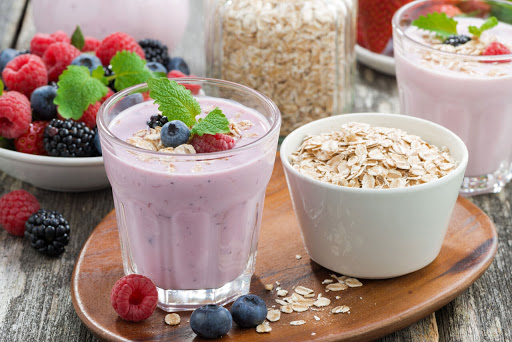If you are planning on having your wisdom teeth out, or have had your wisdom teeth out, you’re in the right place. The more tips, tricks, and suggestions you gather about the healing process will set you up for success.
In this article, I’m going to share everything you need to know about what to eat after wisdom teeth removal, what creative soft foods are good to stock up on, and even the tips of what not to eat and why.
You may have heard wisdom teeth also called “third molars.” The technical term is third molars, but for simplicity and consistency’s sake, we will refer to them as wisdom teeth since that’s what most people refer to them as.
Oh, and to address the elephant in the room, in case you’re thinking about having your wisdom teeth out and getting even more anxious by reading this. Don’t overthink it too much. It should be comforting to know that approximately 85% of people have at least one of their wisdom teeth removed in their lifetime.
So you are not alone, and you will make it through. By reading an article like this you are preparing yourself, educating yourself, and increasing your odds for an easy recovery. Be proud of yourself for taking care of your health, not anxious.
Now let’s give you what you came here for. As told by a wisdom teeth expert, let’s learn what you can eat after wisdom teeth removal, when can you eat solid food, and how long after wisdom teeth can you eat normally.
What to Eat After Wisdom Teeth Removal
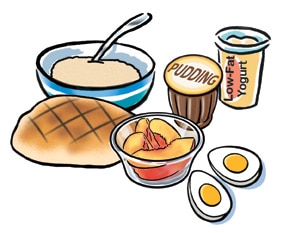
After wisdom teeth removal, the primary goal is healing as easily and quickly as possible. What you eat after having your wisdom teeth out is key to maximize your recovery. You want to limit the amount you irritate the sites that are healing, and avoid straining your jaw muscles by trying to eat food that is too difficult to chew.
Immediately following your wisdom teeth removal, you’ll want to start with liquid and soft foods. Avoid eating harder foods at this time, as these might irritate, or get trapped in, the recovering area.
Many patients ask if they need to be cautious about the temperature of their food. The simple answer is no, you do not need to worry about food temperature after wisdom teeth removal. If it’s a comfortable temperature that wouldn’t burn your gums normally, its generally okay.
Now that we talked about hot food in terms of temperature, you are probably wondering, Can I have spicy food? And that’s a simple answer as well. You should not have spicy food after wisdom teeth removal for about 2 weeks.
Here are some common examples of some of the most common foods people stock up on prior to their wisdom teeth being extracted.
Examples of liquid and soft foods you should consider include:
- apple sauce
- yogurt and cottage cheese
- smoothies
- protein shakes
- soups
- mashed potatoes
- scrambled eggs or omelettes
- Jell-O, pudding, and ice cream
I want you to think of your diet during healing in terms of how you can balance it within the parameters of the limited options. Cold foods like ice cream help to relieve some discomfort. Nutrient-rich soups and smoothies can help promote healing. Eggs, or cheeses help provide a source of protein to satisfy hunger.
Start first with the softest foods on the list and as you start to heal, you can incorporate more semi-solid foods such as finely minced meats like pulled chicken or pork. We’ll discuss the details of which foods to introduce day by day during healing, more on that later, but first, let’s look at my top recommendations for creative foods after oral surgery.
Dr. Sutera’s Top 10 Foods to Eat After Wisdom Teeth Removal
1. Soup (there’s dozens of different options for soup, so pick your favorite)
2. Oatmeal with minced fruit (you can even get creative by blending peanut butter or almond butter if you are not allegic to nuts)
3. Scrambled eggs or omelets (Pro tip: You can add variety by incorporating cheese and soft vegetables like avocado, onions, or tomatoes)
4. Ice cream
5. Pudding, particularly rice pudding helps to satisfy hunger
6. Mashed Potatoes
7. Yoghurt or Cottage Cheese (also great with finely minced fresh fruit or fruit jelly)
8. Smoothies
9. Soft Rice or Quinoa
10. Refried beans
Bonus Tip: You can also help supplement your nutrition with protein shakes or meal replacement shakes.
Now if there was any confusion if I am dentist or a chef, I think we cleared that up. I’m pretty sure there’s not a single chef on the planet that would have a top 10 menu like that, but hey, during wisdom teeth healing it’s not so bad. You can get pretty creative with the soft foods above.
Beverages To Drink After Wisdom Teeth Removal
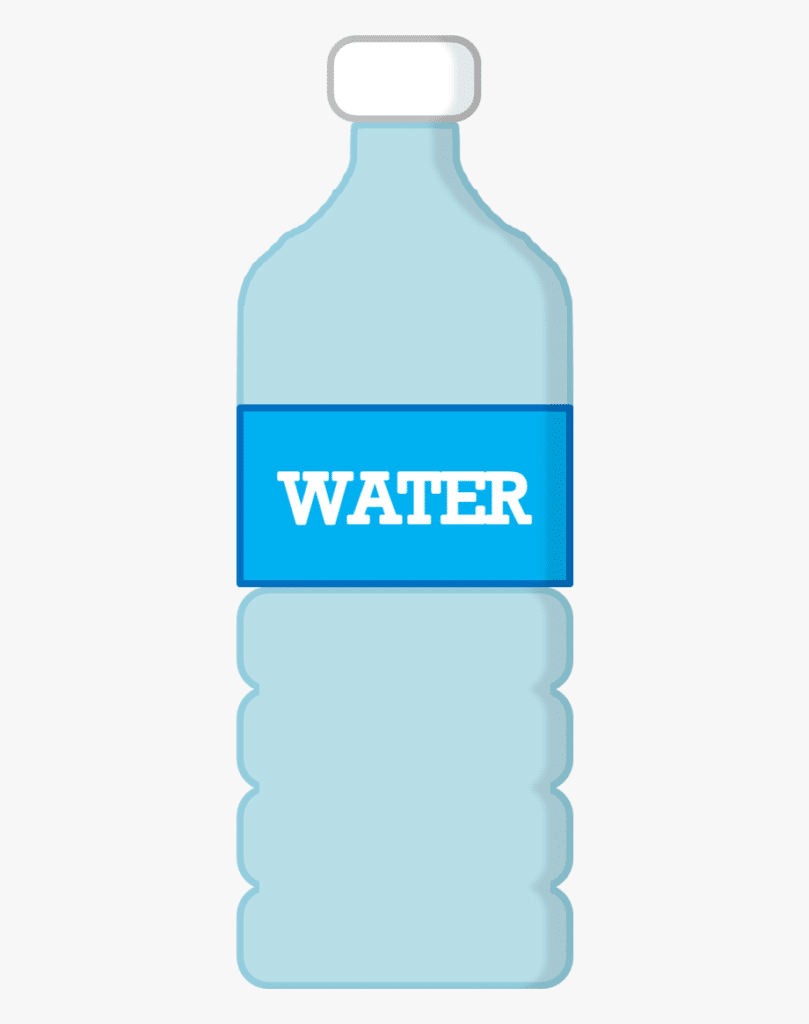
You have to remember that nutrition from food is only half the story. Your fluid intake is very important to support your healing. You will want to stay hydrated with water or particularly drinks that have added electrolytes like Gatorade or Powerade, especially in the first 24-48 hours after the surgery to improve your levels of hydration.
What Not to Eat or Drink After Wisdom Teeth Removal
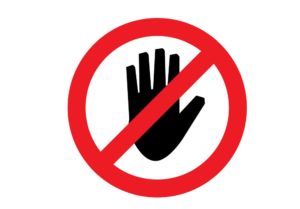
There are some foods that you should avoid following your wisdom teeth removal. Try to follow the foods listed above for the first two to three days before trying more tedious foods. Here is a list of foods you should avoid for the first 1-2 weeks of healing after wisdom teeth removal:
- Acidic and spicy foods which can irritation the healing. If you are feeling pain when you have a soft food, it’s probably too acidic or spicy.
- Alcoholic beverages can delay healing and interact negatively with the pain medication prescribed by your doctor.
- Caffeinated, carbonated, and excessively hot beverages.
- Grains and seeds that aren’t soft that can easily become trapped in the extraction site.
- Hard or difficult-to-chew foods (for example, nuts, meats, sticky candy, or jerky).
Let me dive a little deeper into one of the points. A common question patients ask is “when can I have alcohol after wisdom teeth removal?” That’s a great question to ask because it’s important for your success in healing. You should avoid alcohol for 2 weeks after wisdom teeth removal.
The recommendation to avoid alcohol for 2 weeks includes avoiding beer, wine, and hard liquor, but you should also avoid swishing with mouthwashes that contain alcohol. The reason is simple. Alcohol dries out the tissues and also irritates the gums. So unless you want to have a more difficult recovery, you will be much happier to heal faster by avoiding it.
And of course on that note, you should also avoid smoking or using any type of tobacco for a minimum of 72 hours after surgery, but ideally 1 week, as it increases the risk of complications such as dry sockets.
Why You Can’t Eat Solid Food After Oral Surgery
You’re healing from wisdom teeth, and you can’t even eat what you want? Let’s talk about why so you understand the reasoning behind it.
The reason is two fold. The areas where the wisdom teeth create a space in the gums that needs to heal. If solid foods get caught in the area it can get infected and prevent the sites from closing. The second reason is that because of the swelling and strain placed on the muscles when healing, you will not be able to open wide or chew powerfully for a couple weeks. Limited jaw opening is normal during healing after wisdom teeth surgery, and by limiting your diet to soft food also limits additional strain of the muscles.
Completely Avoid Using Straws

I know I’ve stressed the importance of liquids during your healing. I’ve even suggested smoothies and beverages for meals. You’re thinking, now you want me to avoid straws? Yes, I want to point out all these liquids should be consumed from a cup or glass.
Do not use straws for the first 2 weeks after wisdom teeth surgery.
Here’s the reason: straws create a suction in the mouth which can dislodge the blood clot that is allowing the site to heal. If a straw is used the suction can disrupt the blood clot which creates a delay in healing known as a dry socket.
Keep It Clean
As we talked about you will want to limit the amount of food that gets caught around the area that is healing. Try to be cautious to keep food away from the healing sites as best you can.
You can brush gently beginning on day two. Most toothpaste and tooth brushes are okay. Try to brush as best you can, but if you are feeling pain, you are probably going back too far.
Do not rinse your mouth with any mouthrinses not recommended by your dentist or oral surgeon. You can place warm salt water in your mouth 3-4 times per day, but you want to be cautious not to swish. Swishing during the first few days after wisdom teeth removal can wash away the blood clot from the site which creates a complication called a dry socket.
Recovery timeline
The bulk of the healing for wisdom teeth occurs in the first 5 days post operatively. You will be tender and sore for about 2 weeks, but once you get through the first 5 days you will start to see the light at the end of the tunnel. Here are some guidelines for helping you day by day for those first 5 days.
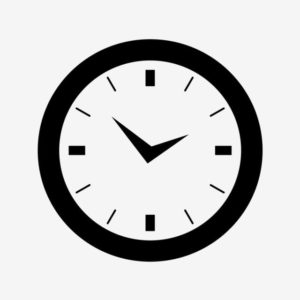
DAY 1
On the day of surgery, you may have had to fast prior to surgery if you were sedated and the surgery itself will tax the body. You will want to focus on replenishing nutrients with hydration. You will have a moderate amount of discomfort that will be managed with pain medication and antibiotics.
It is common you’ll be hungry but won’t want to eat. You should be mindful to have some source of soft food when you take your medications and establish that as a routine during the next few days to avoid nausea from the medications. Today you should avoid solid foods altogether. Instead, focus on liquids like broth, yogurts, ice creams, etc. It is essential that you get enough liquid juice, Gatorade, and water are great options. During the first day, you should also focus on icing your cheeks in the area of the extraction for about 20 minutes on and 20 minutes off.
DAY 2
After the first day, you can begin focusing more on soft foods in addition to fluids. You still will want to avoid anything hard, but you can eat items with some substance like cottage cheese, eggs, and yogurt. When you begin to introduce more foods, avoid the food sitting on the incision site. Sensitivity, swelling, and limited jaw opening is normal during this time so chew slowly and cautiously.
DAY 3
On day three, you will be continuing eating soft foods. If you feel you are doing well you can also incorporate semi-solid foods like mashed potatoes or soft rice into your diet. However, you need to be particularly careful to not get any food caught in the healing sites.
DAY 4
Day four is a turning point because you may start turning the corner and feeling better. This is what commonly leads people astray. You wouldn’t believe how many people call our office and say they felt better on day 4, but then suddenly they more swelling/pain developed. This happens because people often start doing a little more than they should on day 4. Don’t get overly daring just yet. You should continue to stick with liquids and soft foods for the next two days.
DAY 5
Day five is often the last post-operative day, before you go back to work or a relatively normal routine. You should still be having softer foods, but usually can have items on the list that are semi solid like soft pasta, pulled/minced meats, and eggs. As you start reentering your normal routine, you will also want to be mindful of your activity level. It is still too soon to be doing any strenuous exercise or vigorous work. Generally between 7-14 days is when exercise can begin.
AT ABOUT 2 WEEKS
round two weeks is when about 85% of your healing is complete. There is still some healing left to go but it will occur slowly over the next couple of months. You may notice your jaw opening is still slightly limited and there is still tenderness if you chew aggressively on the healing sites. This is all normal and will slowly return to normal. At 2 weeks after wisdom teeth removal you can generally eat whatever you feel comfortable eating. If you jaw is sore when you eat it or if there is pain when you eat it, you should avoid that food until it no longer bothers you to eat it.
How Long Until I Can Eat Normal Food After Wisdom Teeth Extraction?
Don’t worry — you won’t have to stick to wisdom teeth recovery food forever. But the time frame for healing can vary somewhat, with most people returning to most of their normal foods somewhere between days 7 to 14 after surgery. You’ll probably notice yourself starting to feel better within a few days, but it’s helpful to plan for plenty of healing time so your body can heal at its own pace.
If you’re not sure whether you’ve healed up enough to use a straw or return to spicy, chewy or crunchy foods, schedule a follow-up visit with your oral surgeon or your wisdom teeth dentist.
How Long After Wisdom Teeth Removal Can I Eat a Burger?
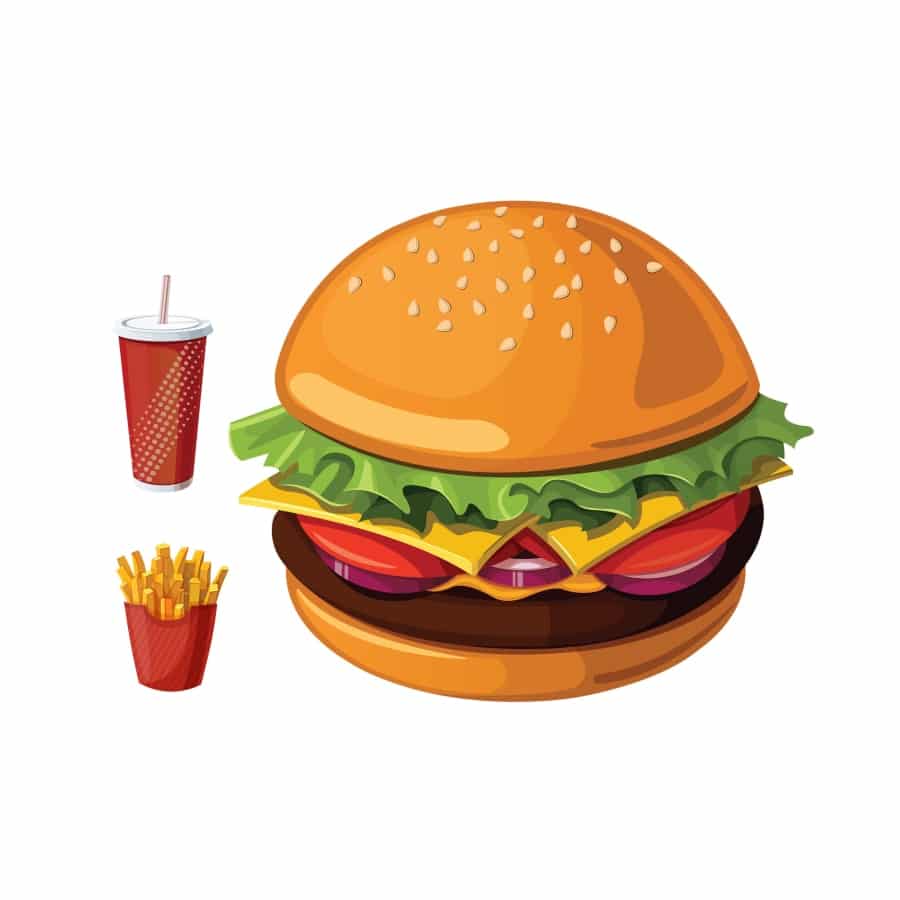
Oh gosh, I know, that’s a random question to have it’s own section. But you know what? It’s actually one of the most commonly googled questions about wisdom teeth removal. I know that because I checked. So, since you really want to know, I’ll deliver.
You can eat a burger about 2 weeks after wisdom teeth removal. The primary reasons you have to wait until about two weeks is that your jaw will be limited in how much it can open up until 2 full weeks. If you feel you can’t open fully at 2 weeks, give it another week and you should be good to go.
Wisdom teeth complications after eatting
Severe wisdom teeth removal complications aren’t common, but mild complications are common and usually occur from normal things the patient does during the course of healing. Here are the most common complications from eatting:
Dry sockets
Dry sockets are common. The technical term for a dry socket is alveolar osteitis. A dry socket occurs when the blood clot that forms in the healing site is dislodged. This typically happens between three and five days after tooth removal. Dry sockets can be treated by your surgeon. They will flush out debris and may cover the socket with medicated dressing. A common sign of a dry socket is that the area was feeling better and then suddenly worsens.
Symptoms of dry sockets include:
- an unpleasant taste or smell coming from the socket
- aching or throbbing pain in the gum or jaw (it may be intense)
- exposed bone
Infections
Infections can be caused by food particles or other bacteria becoming trapped in the socket where your wisdom teeth were removed. Bacteria can spread throughout the body and should be treated quickly.
Symptoms of an infection include:
- blood or pus from the extraction site
- fever
- spasms of the jaw muscles
- chills
- painful or swollen gums near the extraction area
- bad taste or smell in the mouth
- sore throat
Heal and Conquer

There’s everything you need to know about what to eat after wisdom teeth removal and how long before you can eat normally again. Give yourself time to heal and be patient. In time you will heal and be back to normal without having to worry about your wisdom teeth again.

